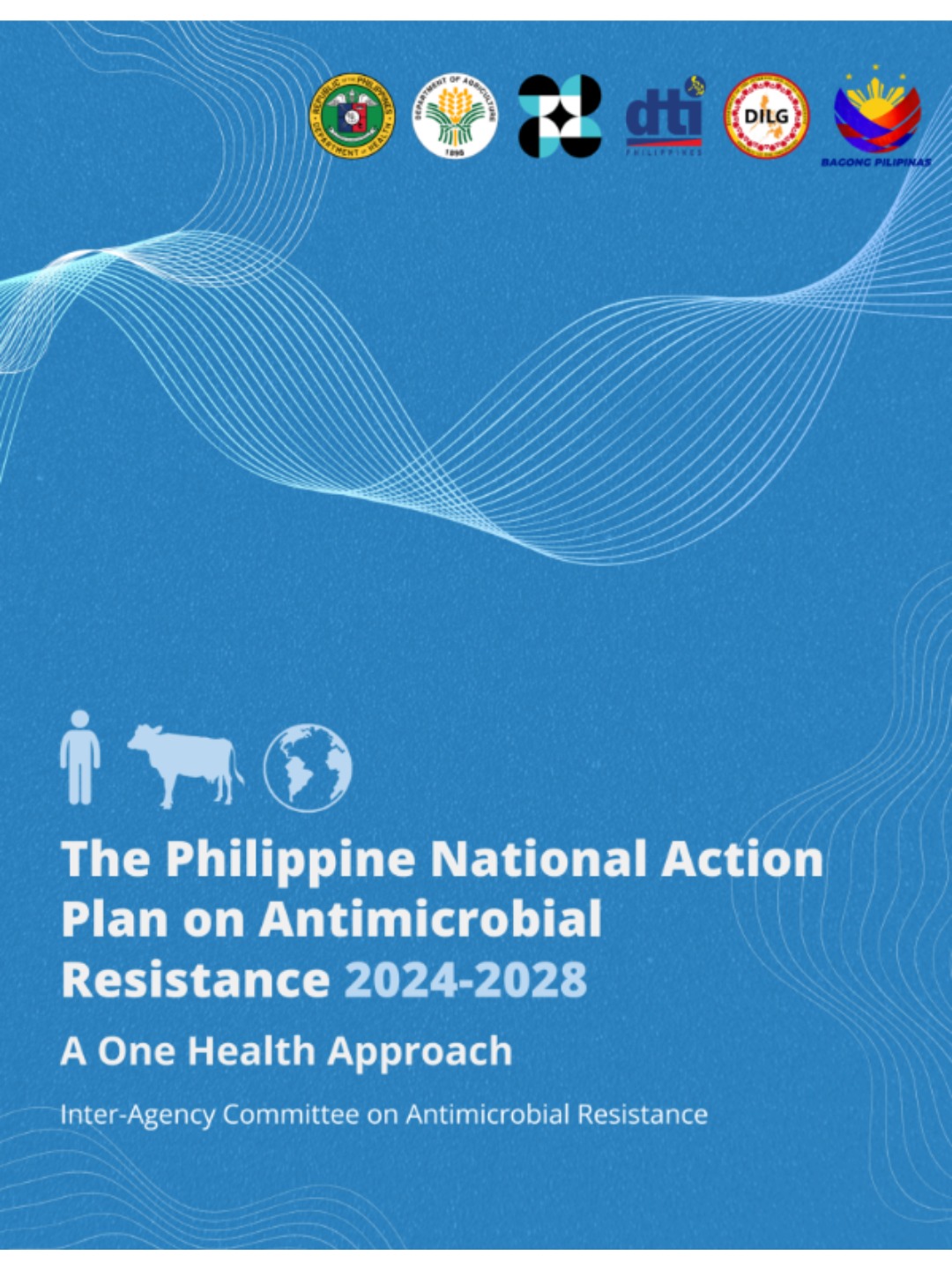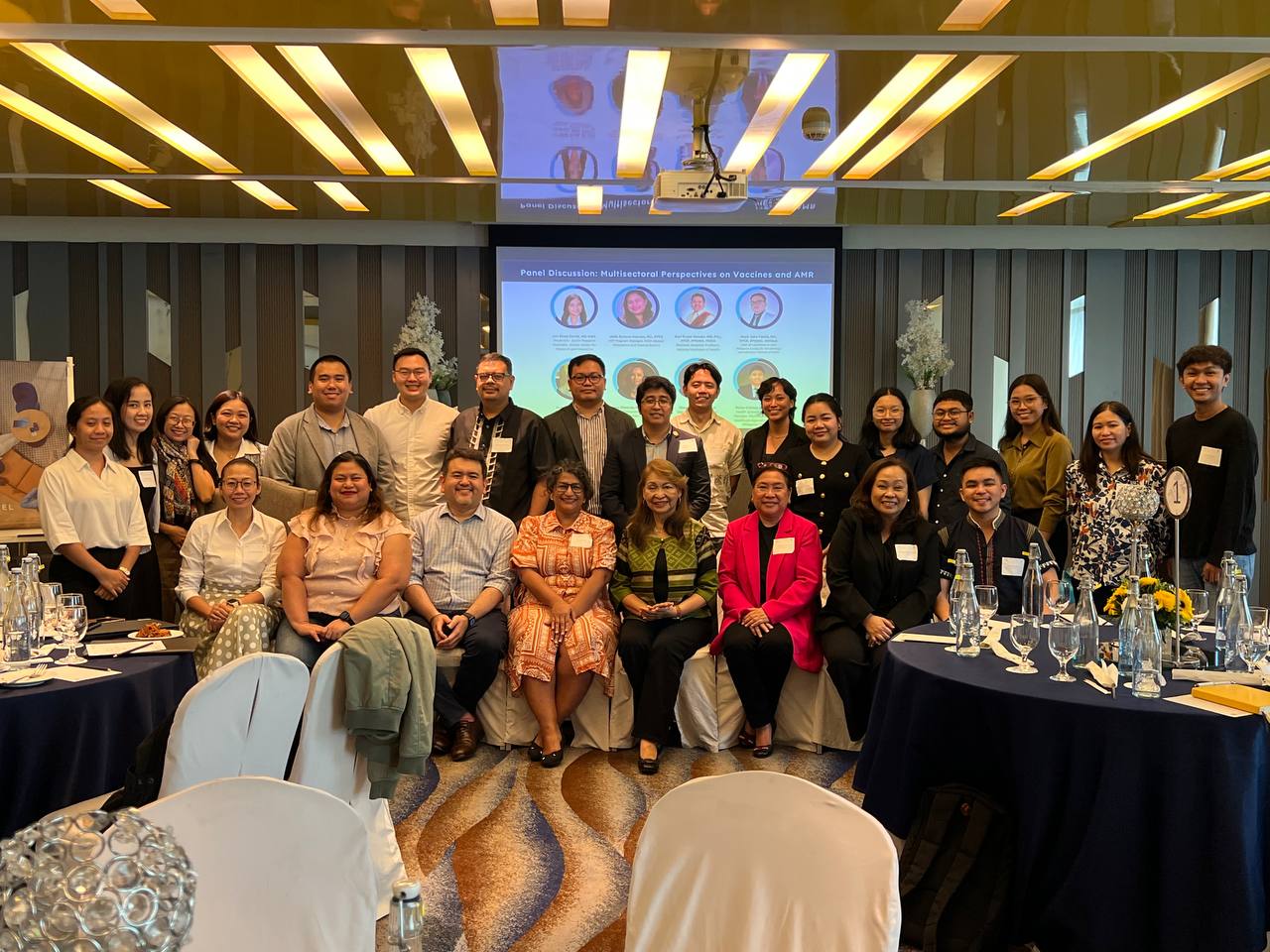
Implementation Review of the Philippine National Action Plan (PNAP) to Combat Antimicrobial Resistance (AMR) through One Health Approach 2019-2023 and the Development of a New Medium-Term AMR Action Plan for 2024-2028
Antimicrobial resistance (AMR) remains one of the most urgent public health challenges of our time—threatening not only health systems, but also agriculture, the environment, and the economy. Recognizing the complexity of this issue, the Philippine government adopted a One Health approach in crafting its National Action Plans (PNAP) to Combat AMR.
In 2023, the Ateneo School of Medicine and Public Health – Center for Research and Innovation (ACRI) was engaged by the UN Food and Agriculture Organization (FAO) to support the review of the 2019–2023 PNAP and to co-develop the third iteration of the plan for 2024–2028.
The new action plan builds on the lessons of the past five years and seeks to mobilize stakeholders across human health, animal and plant health, agriculture, the environment, education, and the economy. Its objectives go beyond policy development—placing stronger emphasis on implementation, sustainability, and accountability mechanisms to ensure that AMR strategies are not just designed, but delivered effectively.
ACRI’s role was to provide technical assistance, research expertise, and facilitation throughout the review and drafting process. By integrating evidence-based recommendations and ensuring the meaningful engagement of multiple sectors, ACRI contributed to shaping a roadmap that is both ambitious and grounded in practical realities.
AMR threatens to undermine decades of progress in medicine and public health. Without urgent, coordinated action, common infections could once again become untreatable, jeopardizing patient outcomes and increasing healthcare costs. The 2024–2028 PNAP is a critical step forward: it lays down a clear strategy for the Philippines to contain AMR through surveillance, stewardship, innovation, and cross-sector collaboration.
For ACRI, this project underscores our mission of bridging research, policy, and practice. By working with national and international partners, we aim to ensure that the fight against AMR remains a top priority—and that solutions are sustainable, inclusive, and impactful for communities across the country.
-

The Unseen Link: Vaccines and Antimicrobial Resistance in the Philippine Context
Antimicrobial resistance is already claiming lives, and the global pipeline for new antibiotics is shrinking. In August 2025, experts gathered to explore a critical question: Can vaccines become a frontline weapon against AMR? The science is clear—by preventing infections, vaccines reduce antibiotic use and slow resistance. But translating this into action means confronting data gaps, political barriers, and financing challenges. As one expert noted: "When we vaccinate, we reduce the frequency of these diseases. That means fewer antibiotics—used and misused." With no country in the Global South yet integrating vaccines systematically into AMR strategies, the Philippines has a chance to lead—if stakeholders can move from consensus to action.
-

Advancing vaccine uptake to mitigate antimicrobial resistance (AMR) in low and middle-income countries of South or South-East Asia
This project explores how strengthening vaccine uptake can serve as a key strategy to mitigate antimicrobial resistance (AMR) in the Philippines and across South and South-East Asia. By reducing the burden of vaccine-preventable diseases and the unnecessary use of antibiotics, the study aims to provide actionable recommendations for national and institutional stakeholders to better integrate vaccination initiatives into AMR control efforts, ultimately contributing to stronger, more resilient health systems.
